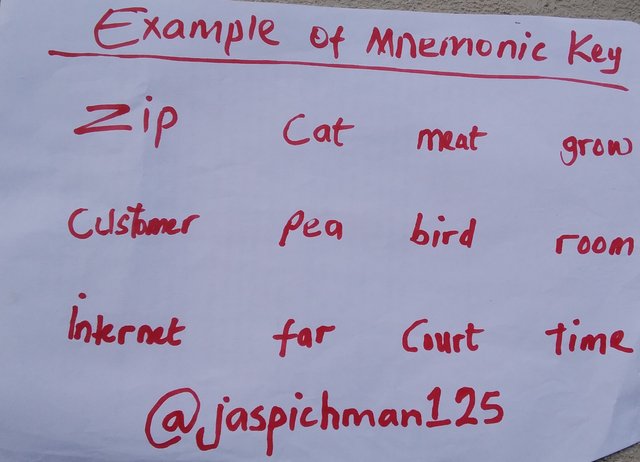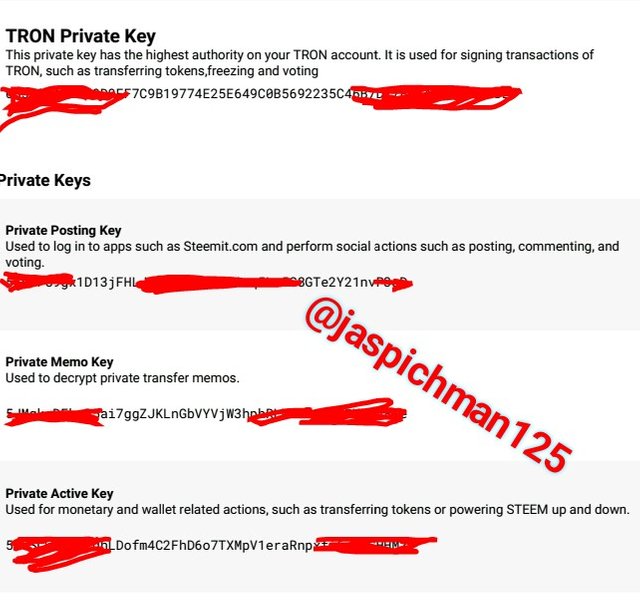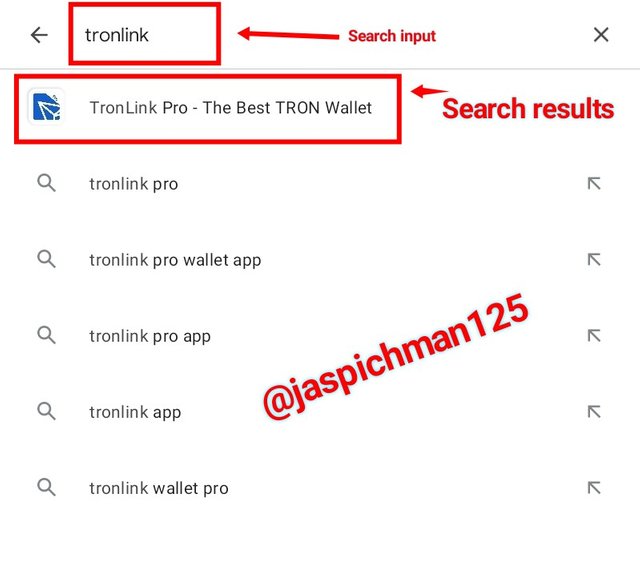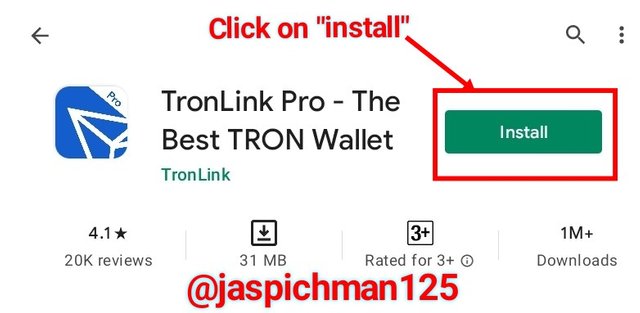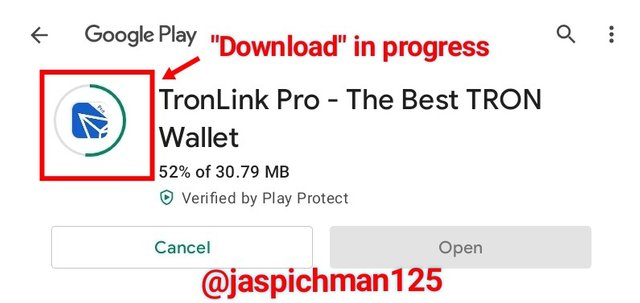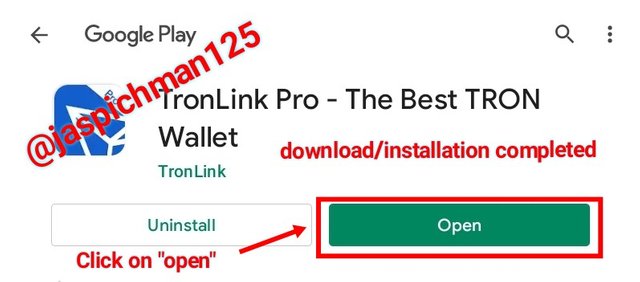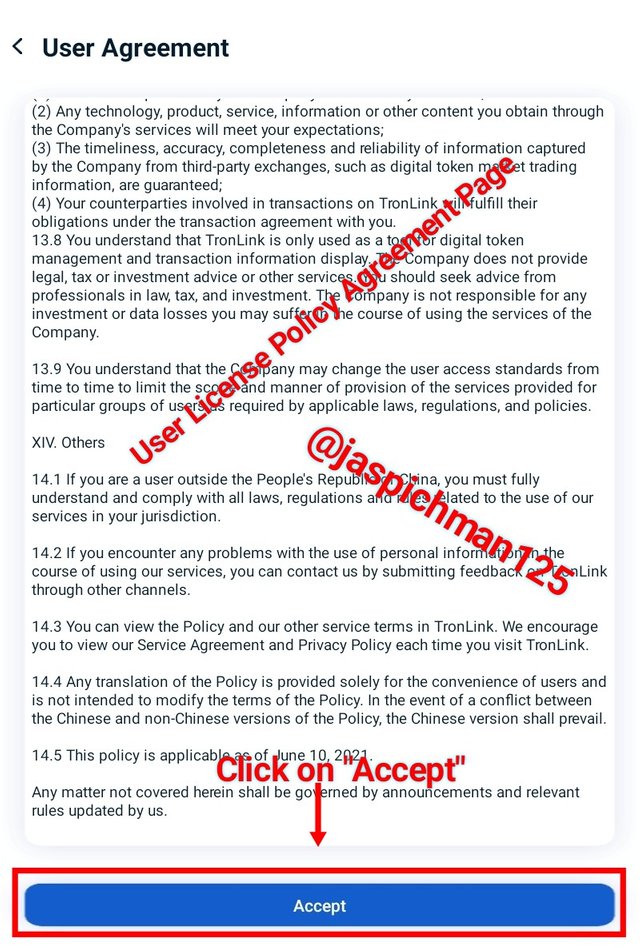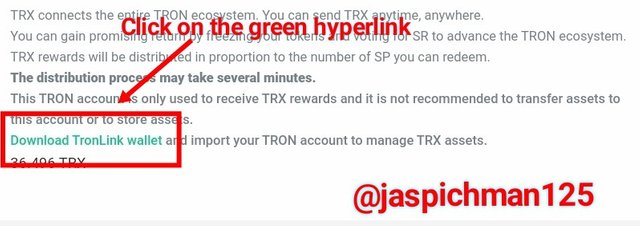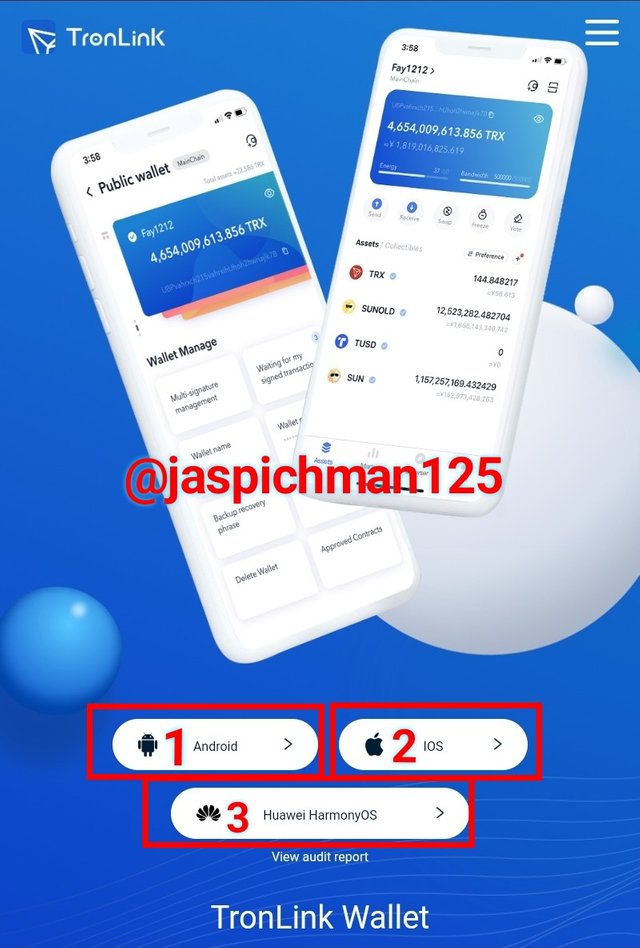CryptoAcademy S4 Task-9: Blockchain Wallet-- Types, Uses, Installation || By @jaspichman125
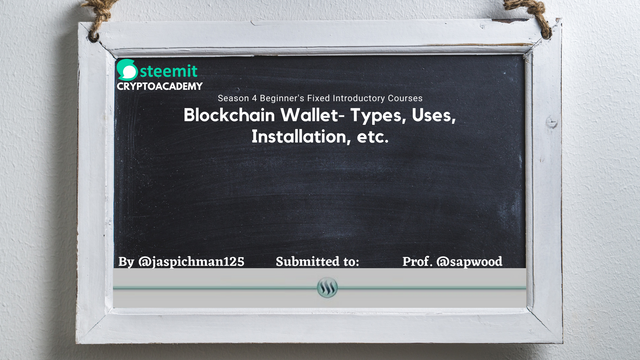
(1) How do you store/secure your keys? What are the different forms of Private Key(Examples/Screenshot)? Download & Install TronLink Wallet(Android/iOS/Extension)? How do you store the key(Hint- write it down on a notepad, demonstrate it with examples)? Which form of the key are you comfortable with to handle your TronLink Wallet? Include Screenshots & hide/blur the sensitive information.
In my own opinion, a key is a list of words, phrases, numbers, and special characters e.g. ?!#$%&@, which can be numerical only (containing numbers only) or alphanumeric (combination of numbers and special characters and letters or words).
A key is required or needed for you to have access to something that is locked up using the key; for instance, a cryptocurrency wallet.
The main function of a key is to grant access and provide security
Security is one of the powerful topic in cryptocurrency world. Therefore, it is important to store our keys and keep them safe and secure. The security of our keys determines the security of our digital assets. When we store our keys securely in a proper place, it prevents (1) loss of access to our digital assets, funds or tokens perhaps the keys gets lost. That is, proper storage of your keys prevents the loss of the keys itself. (2) Another advantage of securing your keys is to prevent access to your funds or account by cyber criminals, fraudsters, hackers, etc.
In centralised platforms e.g. wallets, users don’t have to bother about storing or securing their account. The central authority of that platform does that for it’s users. You only need a login password and not a key.
Whereas in decentralize platforms, e.g. decentralized Exchanges or wallets, the security of your account is entirely dependent on you as a user. You have to store your keys in a secure place to prevent loss of access to your account.
- I don’t store my keys on Hot wallets or devices that are connected to the Internet. Rather I store my keys on cold wallets or offline devices.
- I write my keys in my notepad, journal or a diary and keep them safe in my vault.
I also inscribed or engrave my keys on hard surfaces like metals or stone. This is because, the keys I store on a paper can be burnt or damaged by water or flood. So, I have an option of writing it on surfaces which cannot be flooded or burned.
Keys are exclusive and should therefore be kept exclusively from others. I don’t share my keys with anyone for whatsoever reason.
Storing my keys on a multiple devices or places is another step I take to ensure the security of my digital assets/tokens.
I store my keys on Google Drive, OneCloud and other Cloud Storage platforms.
Lastly but not the least, I also use multi-signature to secure my account. This offers a double layer security to my wallets because I have set multiple keys as requirements for authorization of transactions in my wallets. If a hacker knows only one of the keys and not the others, he cannot have access to my account.
Based o the lecture given by our erudite professor @sapwood, there are mainly three (3) forms of Private keys. Namely;
- Mnemonic key: also known as seedphrase, passphrase, or seed key. This consists of randomised words which are chosen not based on a certain rule but based on pure randomization.
The seedphrases (words) are generated to a user upon successful registration. Sometimes the length of the words varies between 12 to 24 depending on the wallet or the blockchain network.
The words appear in serial or sequential order. The implications of this ”sequential order” is that, you cannot have access to the account except you input the seedphrases sequentially (in their order of appearance). Most users (including myself) finds this form of Private key easy to use and to remember because it is user friendly.
- Private key: is a key formed by combination of numbers and letters or words otherwise called alphanumeric number. They’re used to unlock a cryptocurrency wallet or decipher a file or message on the network. They’re also used for authorising transactions in your account.
On Steem and Tron networks for instance, there are several types of Private keys.
Steemit Private keys
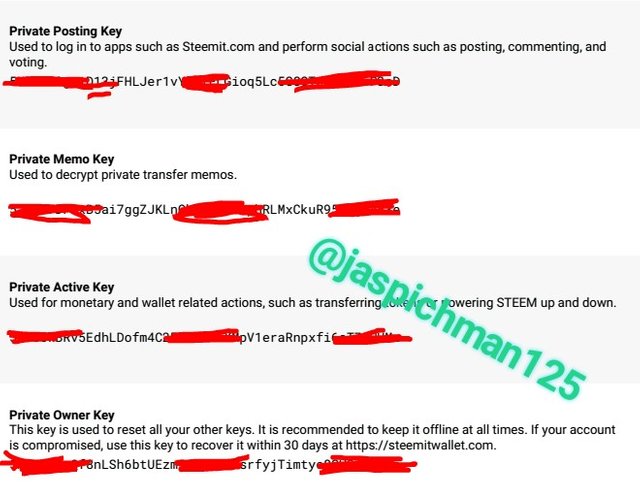
Tron wallet Private keys
They are;
(a) Private Posting Key: used to login to applications such as Steemit. It gives users the ability to post, comment and vote anytime this particular key is used to login to one’s account.
(b) Private Memo Key: used to decipher Private transfer memos.
(c) Private Active Key: on Steem blockchain, such a key is used for wallet related operations or activities like Power Up and Power Down, transfer, etc.
(d) Private Owner Key: used for account recovery and also to reset all other keys.
- Keystore File:
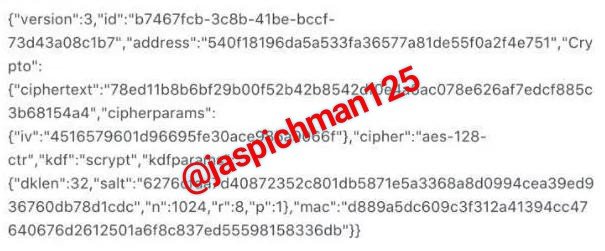
https://www.programmersought.com/article/83166235695/
is in a Java script Object Notation (JSON) format – a kind of ciphertext which is often used for storing and transferring data between devices, computers, networks, etc.
It is best used in combination with a password which decrypt information about the Private key in the Keystore. This means, Keystore file + password gives you access to the information on the Private key, as a consequence, the Private key finally grants you access to your wallet.
It should be noted that, Keystore file cannot secure your account on it’s own, it must be used together with a password. It only encrypt your Private keys so that hackers cannot decipher it without the password you setup.
Download & Install TronLink Wallet(Android/iOS/Extension)
There are ways or methods you can download a TronLink wallet:
(Method 1)
Step 1: You can directly open either your Google Playstore (for Android phones) or Apple IOS (for Apple devices) and type “TronLink “ in the search box provided at the top of the app as indicated in the screenshot below
Step 2: Several search results will appear. Click on the first one (the one with a verified TronLink icon.
Step 3: Click On ”Install"
Step 4: after installation, click on ”open"
Step 5: the app will open. On the first page, click on ”Create Account”
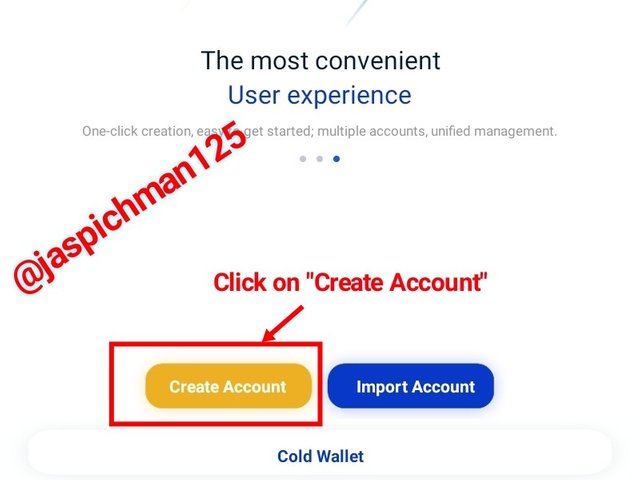
Step 6: accept user licence policy agreement
Step 7: after you input your relevant details or information and your email is verified, a seedphrase will be generated to you. You’ll be required to input ”two" of the seed keys properly in their order of sequence.
After that, your TronLink Wallet is ready!!!
I immediately made a transaction with my new TronLink Wallet 👇👇👇
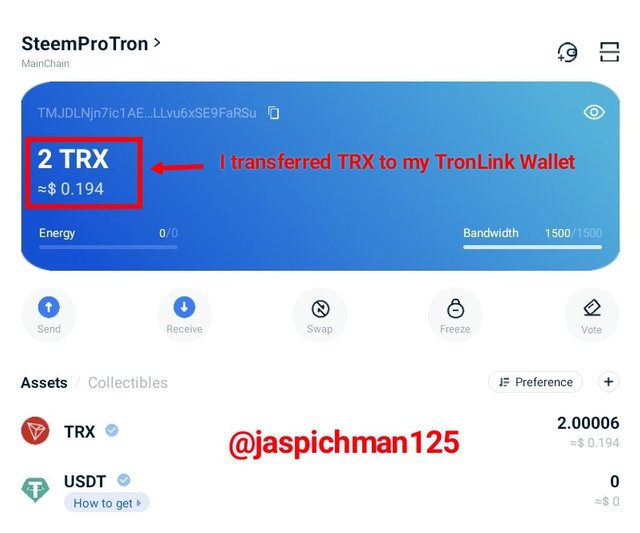
Method 2:
Step 1: On your Steemit wallet, scroll down to Tron wallet and click on the green hypertext link that reads “Download TronLink wallet”
it will automatically redirect you to a Web page as shown in the screenshot below.
Step 2: click on either ”Android”, ”IOS” or ”Huawei Harmony OS" depending on your device manufacturer or model.
Step 3: You’ll be redirected to the appropriate app store based your selection. From there, every subsequent steps are same as described in Method 1 above.
Which form of the key are you comfortable with to handle your TronLink Wallet? Include Screenshots & hide/blur the sensitive information.
As I have stated earlier in the description of Mnemonic keys, I am completely comfortable with using Mnemonic keys because (1) they’re common words that I can easily recall or remember (2) sometimes shorter than Private keys e.g. TronLink Mnemonic key is just 12 words in length (3) it improves my brain power because, I have to remember the sequential arrangement always – this helps my brain have retentive memory.
Prior to the lecture by erudite professor @sapwood, i never knew about Keystore file, and how to create TronLink Wallet. Thanks prof for the wonderful lecture.
I've also learned about how to secure my account by storing my keys in a safe place far away from the reach of fraudulent people.
My account safety is solely my responsibility.
Thanks for reading through my homework.
Best regards; @jaspichman125
Special thanks to prof @dilchamo for her dedication and selflessness.


